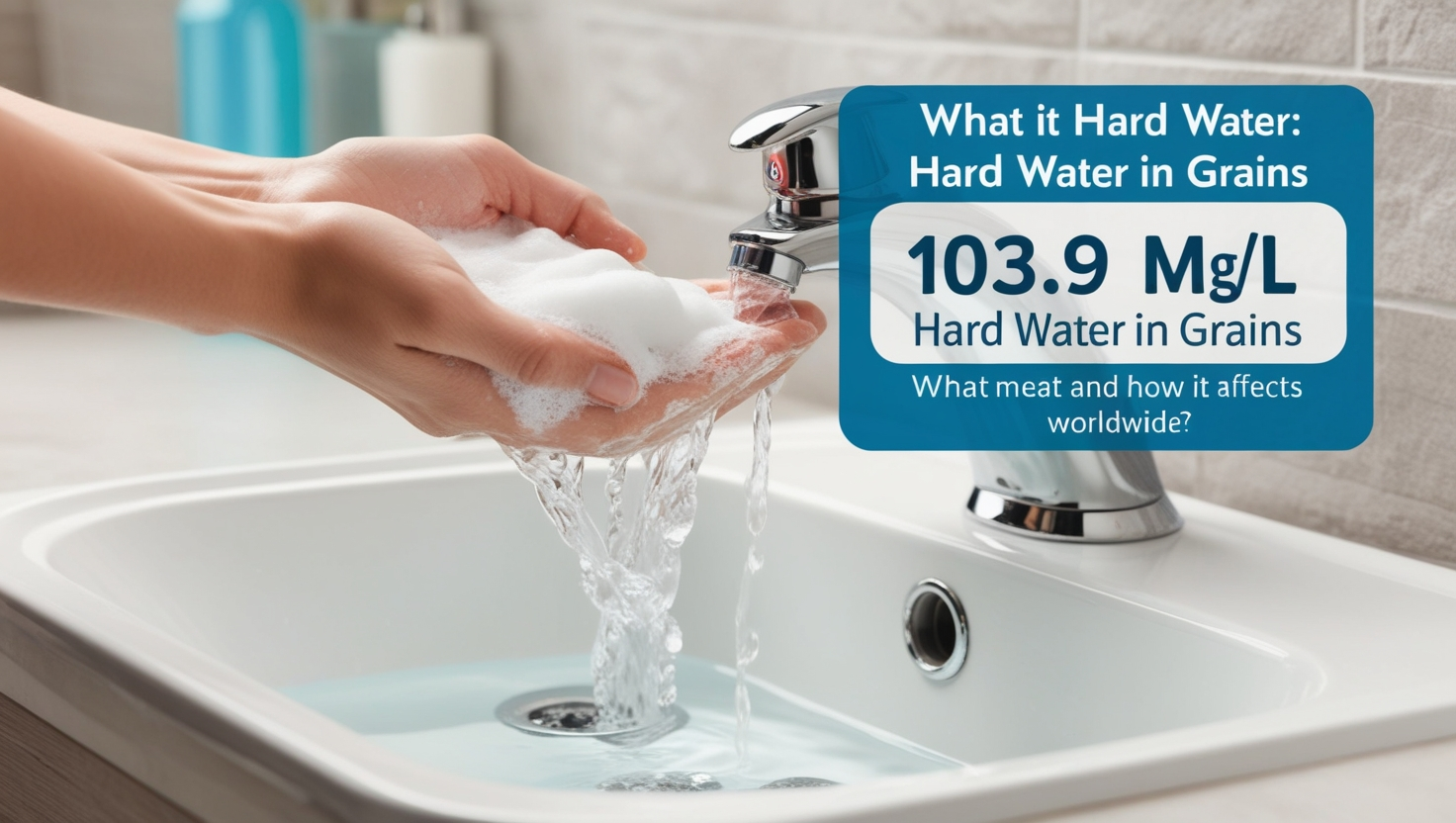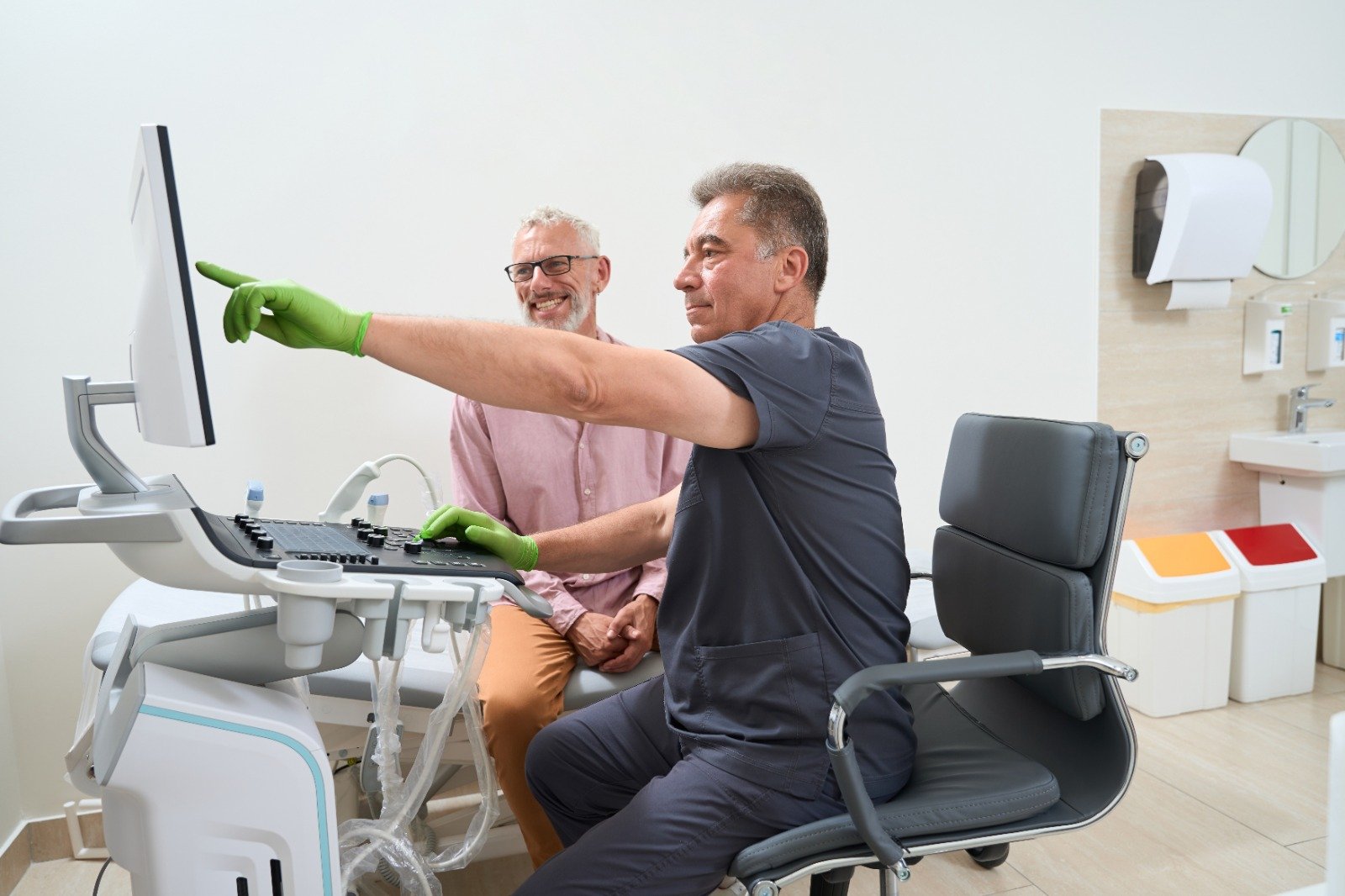
Have you ever noticed a chalky buildup on your faucets or had trouble getting your soap to lather properly? These could be signs that you’re dealing with hard water. When we talk about 103.9 mg/l hard water in grains, we’re diving into a standard measurement of water hardness that affects homes worldwide. But what does this mean, and how can it impact your daily life? Let’s explore what you need to know about this type of water.
What Is Hard Water?
Hard water is simply water that contains a higher-than-average concentration of minerals, primarily calcium and magnesium. When water flows through rocks, soil, or underground mineral deposits, it picks up these minerals, leading to what we know as “hard water.” The term 103.9 mg/l hard water in grains refers to the level of hardness, with “mg/l” standing for milligrams per liter and “grains” being a different unit of measure often used in the U.S. One grain per gallon (mpg) is approximately 17.1 mg/l, which means 103.9 mg/l hard water in grains is about 6.1 grains per gallon.
Read more : Nico Shirley KeepWireless
How Is Water Hardness Measured?
Water hardness can be measured in different units, such as milligrams per liter (mg/l), parts per million (ppm), or grains per gallon (mpg). 103.9 mg/l hard water in grains is a measurement that helps determine whether your water is soft, moderately hard, or very hard. Generally speaking, water less than 60 mg/l (or about 3.5 gpg) is considered soft, while water that is 103.9 mg/l hard water in grains falls into the moderately complex category.
Effects of 103.9 mg/l Hard Water in Grains
- Buildup in Appliances: One of the first places you might notice the impact of 103.9 mg/l hard water in grains is in your household appliances. Whether it’s the dishwasher, washing machine, or water heater, mineral deposits can form inside over time. This can reduce efficiency, higher energy bills, and costly repairs or replacements.
- Soap and Detergent Issues: Have you ever felt your soap isn’t lathering as it should? That’s because the minerals in 103.9 mg/l hard water in grains react with soap, making it harder to get that rich, foamy lather. As a result, you might use more soap, shampoo, or detergent to get things clean, whether you’re washing dishes, clothes, or even your hands.
- Skin and Hair Problems: Hard water can sometimes leave your skin feeling dry and your hair looking dull. If you have 103.9 mg/l hard water in grains, the minerals can leave a residue on your skin and hair, making them feel less clean even after washing. This can also lead to issues like itchy skin or scalp irritation, especially for sensitive skin.
- Clogged Pipes and Plumbing Issues: Over time, 103.9 mg/l hard water in grains can cause a buildup of minerals inside your pipes, reducing water flow and increasing pressure. This can lead to clogs and, in severe cases, even burst pipes or the need for extensive plumbing repairs.
Testing for 103.9 mg/l Hard Water in Grains
If you suspect you have hard water, it’s easy to find out. A water hardness test kit is available at your neighbourhood hardware shop or online. These kits will tell you exactly how hard your water is, usually in mg/l or grains per gallon. If your water is 103.9 mg/l hard water in grains, you’ll know you’re dealing with moderately complex water and can decide how to handle it.
Solutions for 103.9 mg/l Hard Water in Grains
- Water Softeners: The most effective way to treat 103.9 mg/l hard water in grains is to install a water softener. These devices use a process called ion exchange to remove calcium and magnesium from the water, replacing them with sodium or potassium. This can significantly reduce the hardness of the water, making it gentler on appliances, plumbing, and skin.
- Regular Descaling: If a water softener is not an option, consider using descaling agents to clean your appliances regularly. Products designed to break down limescale can help keep your coffee makers, kettles, and dishwashers running smoothly, even with 103.9 mg/l hard water in grains.
- Specialized Detergents: There are detergents explicitly formulated for hard water that can help reduce soap scum and make washing more effective. Switching to these products can make dealing with 103.9 mg/l hard water in grains easier, especially when washing clothes and dishes.
- Showerhead Filters: For those who experience skin and hair issues due to 103.9 mg/l hard water in grains, installing a showerhead filter is a simple solution. These filters can help reduce the amount of minerals in the water, making your skin softer and your hair more manageable.
Benefits of Hard Water
It might seem like 103.9 mg/l of hard water in grains is all bad, but there are some benefits. The minerals in hard water, such as calcium and magnesium, are essential nutrients. Some people even prefer to drink hard water because of its mineral content, which can contribute to stronger bones and overall health. However, these benefits may not outweigh the downsides, especially regarding household maintenance.
Conclusion
Understanding what 103.9 mg/l hard water in grains means and how it affects your home can help you make informed decisions about water treatment. From clogged pipes to dry skin, the effects of hard water are noticeable, but they can be managed. Installing a water softener or using other solutions like descaling products, specialized detergents, and shower filters can make a big difference.
Whether dealing with soap that won’t lather or finding chalky deposits on your faucets, knowing that your water is 103.9 mg/l hard water in grains gives you the information you need to take action. Treating your hard water gives you better appliance efficiency, softer skin, cleaner clothes, and fewer plumbing headaches. Addressing 103.9 mg/l hard water in grains can save you time, effort, and money, making your home life much more comfortable.


